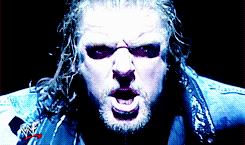Vince McMahon has had a complicated relationship with professional wrestling. I get it. It's a weird thing to think given he's literally spent all of his adult life building a professional wrestling company, but it's true. And, well, Vince would certainly argue the premise of that point.
"Pro wrestling is what my dad did" - Vince McMahon in Beyond The Mat
McMahon has been the majority owner of WWE since he purchased the WWWF wrestling territory from his Dad in 1982. McMahon owned a wrestling company, but worked hard, tirelessly, and without morals throughout the last 41 years to make sure that wasn't all it was. That's the Vince McMahon legacy and it's complicated.
WWE will merge with the UFC under the Endeavor banner after the media juggernaut agreed to buy McMahon's prized grappling corporation for $9 billion in April. On Tuesday morning, WWE and UFC together will form TKO, a new live entertainment company that will trade on the New York Stock Exchange. McMahon will be involved in the new business and will serve as TKO's Executive Chairman -- ending his direct relationship with pro wrestling. In a way, that's all he's ever wanted.
It's sports entertainment
Vince McMahon coined the phrase and vision of "sports entertainment" and operated his wrestling company with that vision in mind for four decades. McMahon was never about the grappling in a smoke-filled building that was barely lit. He wanted to pull the grappling out of that dark environment and into the bright lights of mainstream entertainment. As McMahon walks away from unlimited WWE power on Tuesday, he accomplished that goal in every way.
Hulk Hogan was the star McMahon attached that entertainment vision to. Hogan wasn't the best wrestler in the world, but he looked like a comic book super hero come to life, was charismatic, and understood what McMahon was trying to do in order to expand the WWE footprint.
Hogan led the McMahon army that gobbled up local territories as cable television grew and the end result was the WWE as the prominent national mainstream wrestling entertainment promotion in the United States.
McMahon's model was designed for the masses. His wrestling was rooted in characters and story that connected broadly with fans as opposed to old school grappling that had been around for decades. Utilizing the technology and capability that came with cable television was the megaphone to get his brand of wrestling into the homes of people around the country. In many ways, everything that happened with WWE after worked to further establish the idea of sports entertainment as opposed to professional wrestling in it's truest sense.
McMahon leveraged a relationship with MTV to grow the brand and the idea of WrestleMania revolved around wrestling matches that took place in a ring, but was sold as an entertainment mecca that featured premiere entertainment celebrities like Mr. T, Muhammad Ali, Liberace, and The Rockettes.
Roddy Piper boxed Mr. T at a WrestleMania. Chicago Bears legend William Perry was a battle royal entrant at the same one. Aretha Franklin sang the national anthem in front of an historically enormous crowd at WrestleMania 3.
As the years went on, McMahon continued seeking a strong, but positive perception in mainstream popular culture. In the post-Hogan era of WWE, Jenny McCarthy and Pamela Anderson walked Shawn Michaels and Kevin Nash to the ring ahead of their WrestleMania clash. Movie stars graced WWE's flagship Monday Night Raw program to promote their projects. Donald Trump and McMahon headlined a WrestleMania with the Battle of the Billionaires. Heck, sports icon Pete Rose even popped up at various times to help McMahon position his company as a mainstream entertainment attraction.
Look, even today celebrity entertainment crossover is a fixture of the WWE business model. Recording artist Bad Bunny and social media star Logan Paul are both current mainstream attractions that have dabbled successfully in the wrestling ring to give WWE outside buzz that it always covets. It's a part of the company's DNA.
The theme of McMahon's vision was to do pro wrestling as little like pro wrestling as possible. Ironic? Not really. Just complicated. As of Tuesday, McMahon's WWE will be a main cog in the creation of a new entertainment company, not just wrestling. Mission accomplished, Vince.
McMahon's vision came at a price
Yeah, Vince McMahon achieved his vision for the company and made a ton of money, but that success came at price.
Fans of old school style pro wrestling and even those that could stomach sports entertainment flare from time to time also wanted to vomit over the years as McMahon sacrificed their desires for mainstream notoriety. Pushing stars that were good for the company brand instead of chosen fan favorites caused resentment within his audience that still hasn't recovered to this day.
McMahon sacrificed his own human integrity to reach his goals as well. Simply put? He's a one-track mind guy who just isn't a good person.
As the king of his castle for so long, McMahon used power to get what he wanted -- in boardrooms, in the ring, but also to keep inappropriate relationships afloat. McMahon has been accused of rape, sexual assault, and retired from a leading, everyday role in WWE last year due to a WWE Board of Directors investigation into hush money payments made to women at the company with whom he allegedly had affairs with.
McMahon was put on trial by the federal government for distributing steroids to talent on his roster. He's had up and down relationships with many talent close to him and his success throughout the years including Hulk Hogan, Steve Austin, Bret Hart, and more. He's had back and forth relationships with his own family and chose to do business with a country like Saudi Arabia, whose leadership regime undermines democracy in many ways and disregards standard human rights to women and members of the LGBTQ+ community. All in the name of making a buck.
Again, complicated.
Mr. McMahon the heel
McMahon has been on the record saying he wanted to be a wrestler, but never was one because his father wouldn't let him do it. Fast forward to 1998 and McMahon was accidentally the lead heel in the company's most successful and promotion-defining feud in it's history.
His work as the evil Mr. McMahon character opposite and against "Stone Cold" Steve Austin lifted his company out of the doldrums it found itself in after the steroid trial up to heights previously unseen in the professional wrestling business. Ironic? Yep. Complicated? You bet.
Does Vince McMahon like pro wrestling?
Look quick at the pig that just flew overhead. I know it's hard to fathom, but Vince McMahon will no longer be the head of a pro wrestling promotion. Instead, he's now a prime player in a $20 billion dollar entertainment company.
After four decades of defining the wrestling industry, does Vince McMahon even like pro wrestling? I mean after years and years and years of making sure his company was looked at like anything but, does he even like wrestling? I think he does. Of course he does. But, as I said, it's complicated. McMahon liked pro wrestling enough to do with it what he wanted, to get to where he wanted to go. On Tuesday, he'll arrive there.
Results 1 to 1 of 1
-
09-13-2023, 12:00 AM #1
 WWE Merger With UFC Ends Vince McMahon's Complicated Relationship With Pro Wrestling
WWE Merger With UFC Ends Vince McMahon's Complicated Relationship With Pro Wrestling


BOW DOWN TO THE KING

***GAME OVER!***







 Reply With Quote
Reply With Quote